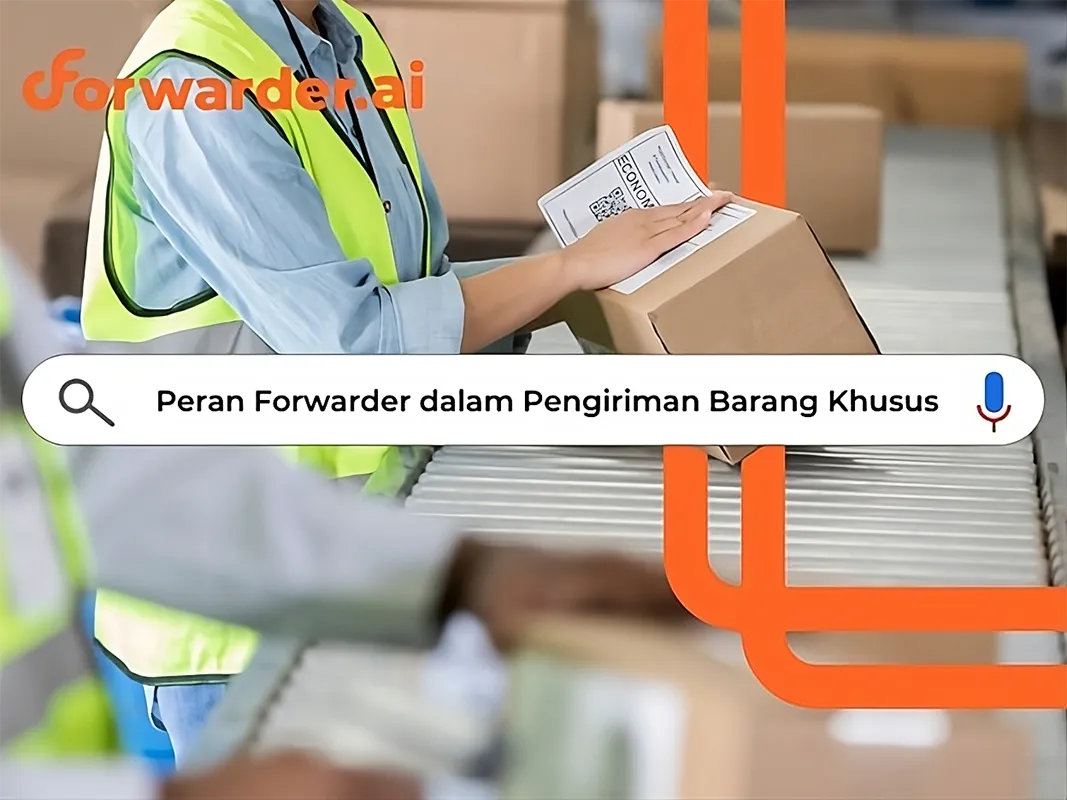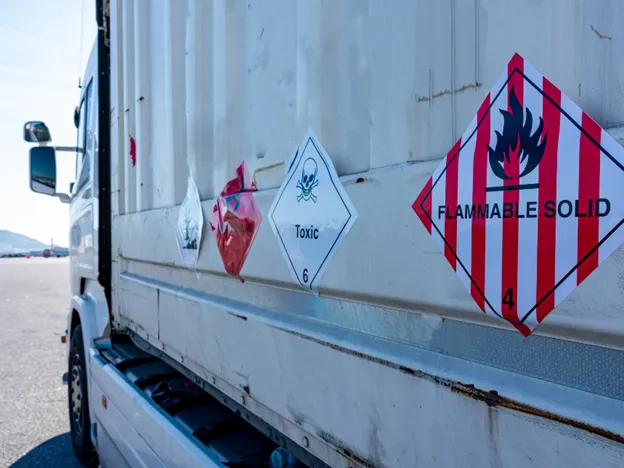
The role of forwarders in the shipment of special and dangerous goods.
Freight forwarders play a crucial role in managing shipments of specialized and dangerous goods that require special handling across the logistics industry. Items such as hazardous chemicals, toxic goods, radioactive materials, or items with special storage needs such as frozen foods, all require extra attention in management and transportation.
What then is the role of the freight forwarder in handling the shipment of these special items?
Freight forwarders must have an in-depth knowledge of the international rules and regulations that apply to the shipment of dangerous and specialty goods. One of the most important international standards is the UN Dangerous Goods Code. This standard provides complete guidance on the correct classification, packaging and labeling of various types of dangerous goods, including chemicals, radioactive materials and flammables. Knowledge of these regulations is essential for freight forwarders to ensure that shipments are made in compliance with applicable laws and avoid potential safety risks during the delivery process.
In practice, these regulations require freight forwarders to understand strict packaging requirements. For example, hazardous chemicals must be packed in containers that are resistant to chemical reactions and equipped with strong seals to prevent leakage. In addition, the correct label must include internationally recognized hazard symbols, such as the skull symbol for poisons or the fire symbol for flammable materials. This helps all parties involved in the supply chain, including carriers and receivers, be aware of potential hazards and take the necessary precautions.

Illustration of objects that contain harmful substances.
Freight forwarders also work with an extensive network of logistics and transportation service providers. This cooperation includes arranging shipments using the mode of transportation that best suits the needs of the goods. For example, for frozen goods or those that require specific temperatures, freight forwarders can arrange the use of refrigerated containers. They also coordinate shipments through safe and appropriate channels for dangerous goods. This process involves intricate coordination between shippers, airlines, ship operators, and customs agents to ensure the shipment runs smoothly and on schedule.
Read more : Why Air Freight is Expensive: Factors that Make it Luxurious
This cooperation also requires freight forwarders to have access to facilities and technology that support the shipment of specialized and dangerous goods. They are usually equipped with sophisticated logistics management software and systems that can control and track every step in the shipping process. These systems can monitor the real-time condition of goods, including temperature and humidity, to ensure their safety and quality during transit. For example, IoT (Internet of Things) sensors are often used to track environmental conditions in containers, providing accurate data and enabling quick action in case of problems.
In addition, freight forwarders offer customized packaging and handling solutions that match the characteristics of the goods. For example, goods that are sensitive to shock or vibration may require packaging with shock-absorbing materials. They can also provide temporary secure storage services if required before onward shipment. This storage is often equipped with strict temperature and security controls to ensure the goods remain in optimal condition until they are ready for shipment.
Freight forwarders also play an important role as consultants to shippers. They help clients understand the risks associated with shipping certain goods and provide proactive solutions to manage those risks. For example, if there is a chance that goods will be exposed to extreme weather conditions during transit, freight forwarders can recommend additional packaging options or alternative shipping routes to minimize the risk of damage.
The importance of the freight forwarder's role in managing hazardous and specialty shipments is also reflected in industry statistics. According to a report from the International Air Transport Association (IATA), approximately 1.25 million dangerous goods shipments are made by air each year, and each shipment requires strict compliance with international regulations. This demonstrates the scale and complexity that freight forwarders face in performing their duties.
In addition, freight forwarders must keep abreast of the latest developments in logistics regulations and technology. For example, changes in regulations governing the shipment of lithium-ion batteries, which are widely used in consumer electronics, require adjustments in packaging and shipping procedures. By constantly updating their knowledge, freight forwarders can ensure that they always comply with the latest regulations and use the best available technology to optimize the shipping process.
Read more : Exploration of Shipping Methods in Logistics: Types, Advantages, and Considerations
Success in handling specialty and dangerous goods shipments also largely depends on proper training and certification. Many freight forwarders follow training programs certified by international organizations such as IATA or the International Maritime Organization (IMO) to ensure that they have the necessary expertise. This training covers aspects such as hazardous material identification, proper packaging techniques and emergency procedures.

Illustration of shipping objects containing hazardous substances by land.
As such, the role of freight forwarders in handling specialty and dangerous goods shipments is not just limited to the technical aspects of logistics. They also act as advisors who assist shippers in understanding the risks associated with specific shipments and provide proactive solutions to manage those risks. With this approach, freight forwarders not only facilitate the shipment of goods, but also ensure that specialty and dangerous goods are shipped safely and in compliance with applicable regulations, adding significant value to their clients.
With the utilization of the latest technology, forwarder.ai is committed to delivering logistics solutions that are ready to face any challenges in the future. One of its latest innovations is forsis, a Transport Management System (TMS) powered by AI. forsis is designed to optimize transportation management by providing automated and intelligent solutions. With AI. that is constantly learning and evolving, forsis is able to provide the best recommendations for delivery routes, optimize costs, and improve operational efficiency. This allows customers to save time and money, and reduce the risk of human error in the logistics management process.
Then there is the Logistics Marketplace, a revolutionary platform that provides access for customers and logistics service providers to connect with each other. Through this platform, all requests and offers made in the group chat will be recorded and recorded by the AI. system, then displayed on the marketplace. In this way, logistics processes that were previously exclusive are now more accessible to the public.
The Logistics Marketplace allows customers to find logistics service providers that suit their needs quickly and efficiently. On the other hand, logistics service providers can find new business opportunities by reaching out to more customers. This is a big step in paving the way for more transparent and affordable logistics for all.
Nikmati voucher hingga 200K untuk pengiriman pertamamu. Langsung berlaku dan otomatis terpotong saat checkout.
Dapatkan Diskon!